October is Breast Cancer Awareness Month.
To encourage women to take charge of their health, we are giving away a local prize package valued at $500.
How do you enter to win?
Simply complete the form below by October 31, 2025.
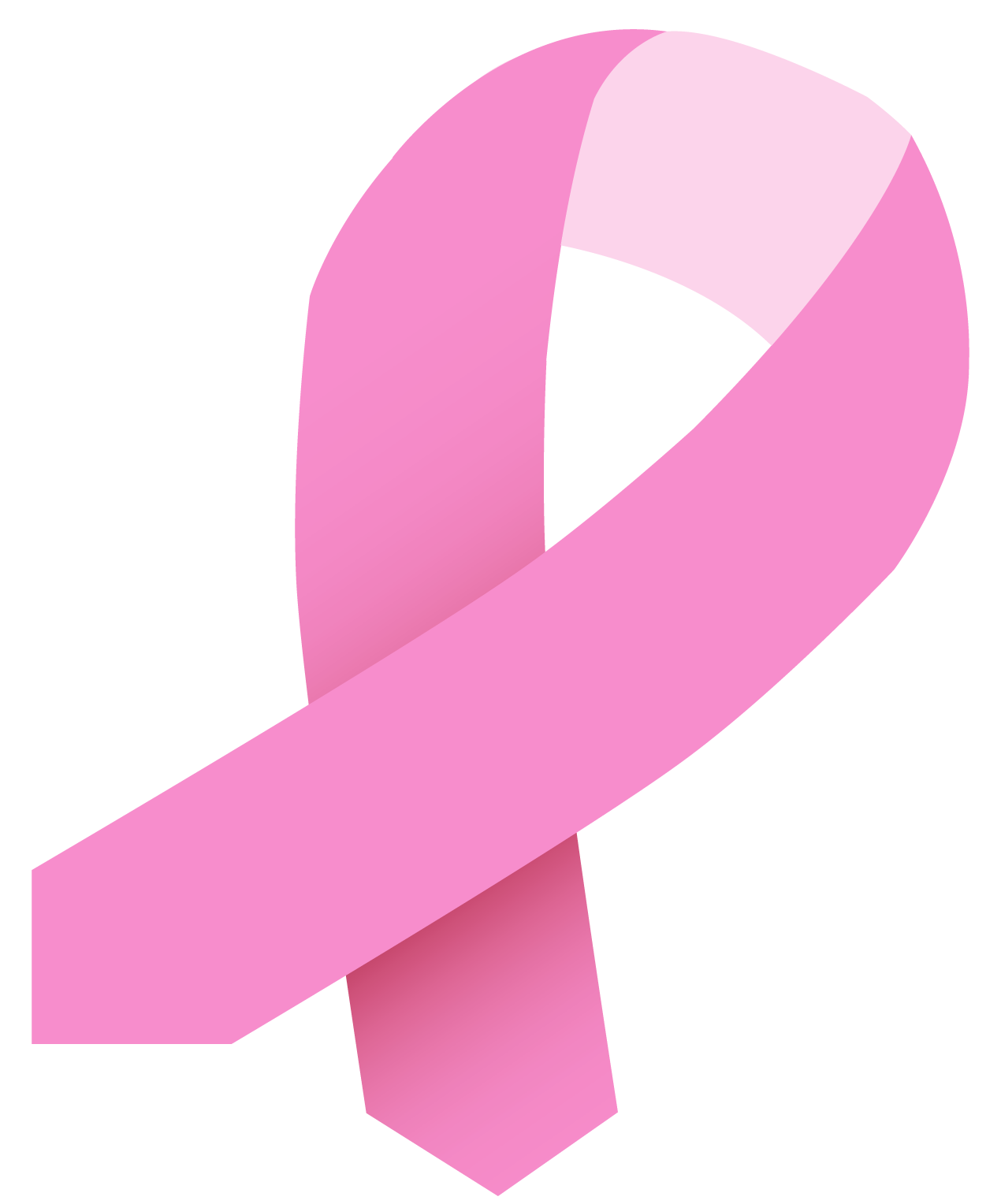
Strength. Support. Survival.
Patient Stories
Real women share their journey with breast cancer to raise awareness and inspire us all.
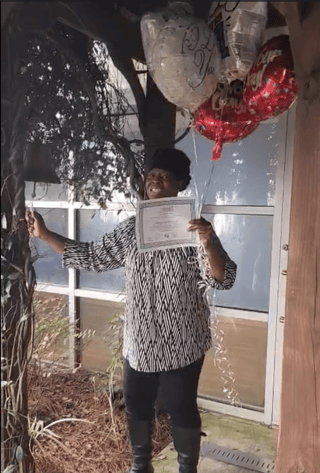
Tammy Brown
Tammy Brown never expected a routine doctor’s visit to change her life.
Around Thanksgiving 2023, she went in to be checked for a lingering dry cough. While in the shower days earlier, she had felt a knot in her left breast. She mentioned it during her appointment, and her doctor immediately scheduled a mammogram at SGMC Health’s Imaging Center.
The first scan didn’t show anything unusual, but Tammy was called back. Dallas Miller, MD, General Surgeon at the Breast Center, believed it was a cyst—not necessarily cancer—but recommended it be removed. A needle biopsy was performed, and the cyst was drained. But it quickly filled back up. The pain worsened, especially when Tammy sat upright, and one weekend she ended up in the ER.
The cyst continued to grow. The following week, she received a call from SGMC Surgery Suite for a new appointment scheduled with Jared Sanders, MD, General Surgeon at SGMC Health. Tammy vividly remembers meeting with Nurse Practitioner Vicy Carroll when she heard the words:
“Mrs. Brown, Dr. Sanders is going to be your surgeon. He’s going to remove the cyst today at 2:00 p.m.”
Tammy calls that moment divine intervention.
“God shifted this. I knew it was fate,” she said.
She didn’t even go back home. On April 4, during spring break, she underwent surgery.
After Dr. Sanders removed the tumor, which was the size of a golf ball, Tammy experienced something remarkable. She had no more pain.
“I haven’t taken any pain medicine, any nausea medicine, no pain in my breast. It was like everything was lifted.”
Even when she was told it was cancer, she remained unshaken, thanks to her faith. “From where I started to where I am today, it was nothing but God.”
Tammy began chemotherapy at SGMC Health’s Pearlman Cancer Center. Her next procedure was on October 3, when her left breast was removed. Through it all, she kept her strength up with vegetable soup and a lot of prayer. She continued working in the cafeteria at Sallas Mahone Elementary School, driving herself to and from appointments.
“I kept pushing. That’s one thing we have to learn. There are times when you don’t feel like doing it, and that’s ok.”
When Tammy told others about her story, she'd say, "I don't want sympathy. I want support." Her caregivers and prayer warriors included her sisters, Gale (Hester) Marshall and Wonda Hester-Baldwin, retired LPN Eula Mitchell, and her church family at New Jerusalem Missionary Baptist Church, led by Pastor George Blunt and First Lady Sinetta Blunt.
Her experience at SGMC Health was all positive. She credits her team of physicians, including Dr. Sanders, plus Radiation Oncologist Paul Adedoyin, MD, and Medical Oncologist Swapna Narayana, MD. She also mentions the staff at the Pearlman Cancer Center who walked alongside her every step of the way, from Yolanda at the check-in desk to Heather and Charlene in infusion services.
"Everyone was fantastic," she shares.
In August 2025, Tammy returned for a mammogram on her right breast. Everything was clear.
Now, Tammy shares her story with pride and purpose. She reminds others that a diagnosis of cancer isn't the end.
“Just because you hear the word cancer doesn’t mean you’re going to leave here. I had to believe.”
She feels strongly that this is now part of her testimony to share with others.
“God used me behind the scenes. I’m just the vessel. He’s not finished with me yet.”
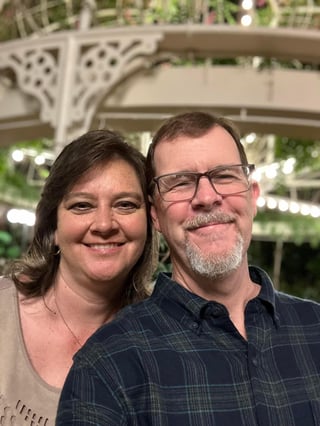
Teresa Farr
Teresa Farr never imagined her 50th birthday would mark the beginning of a life-changing journey.
The longtime SGMC Health employee from Naylor, GA, who has served patients for 33 years, first at the Lanier campus and now at the main campus, scheduled her routine gynecological exam and annual mammogram as part of her birthday plans.
Because she qualified for a 3D mammogram, Teresa chose the advanced screening option. That decision made all the difference. The scan revealed a small, deeply hidden nodule, a type 1A invasive ductal carcinoma, that a standard mammogram might not have detected for another year.
On October 1, 2023, Teresa received her diagnosis. By mid-October, General Surgeon Jared Sanders, MD, performed a lumpectomy and lymph node biopsy. The biopsy came back negative, meaning chemotherapy wasn’t necessary. Instead, Teresa completed 20 sessions of radiation therapy at the SGMC Pearlman Cancer Center.
Throughout her treatment, Teresa continued working and leaned on her biggest supporters, her husband, her SGMC Health family, and her faith.
She describes her experience at SGMC Health as seamless and compassionate.
“From the moment my cancer was discovered, there was no delay. The process was quick, efficient, and everyone treated me like family,” she said.
Now in remission, Teresa is passionate about encouraging other women to stay on top of their screenings.
“Don’t put it off,” she urges. “And if you’re eligible for a 3D mammogram, take it. That technology saved my life.”
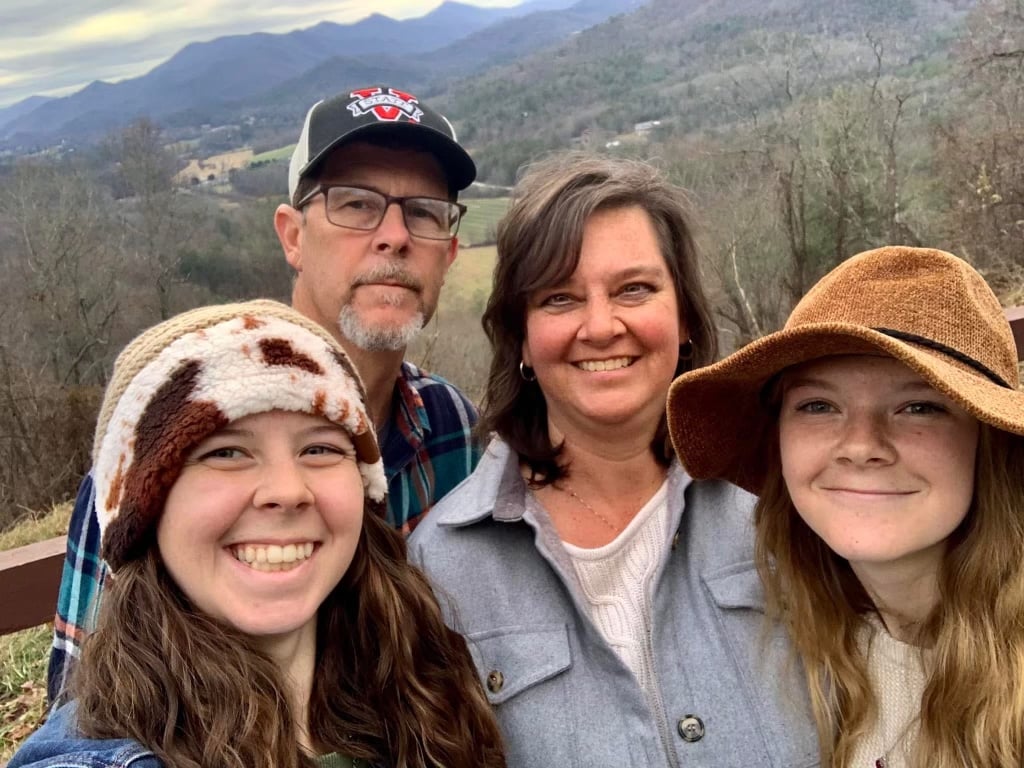
This Breast Cancer Awareness Month, SGMC Health honors Teresa’s journey and reminds the community: early detection saves lives.
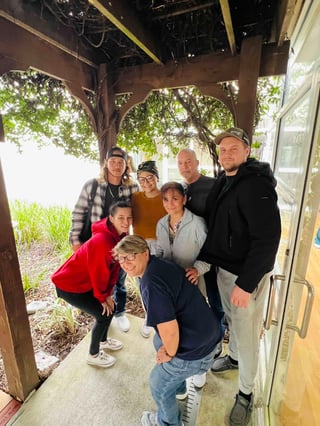
Brittney Sklarek
At just 31 years old, Valdosta resident Brittney Sklarek never imagined she would face a breast cancer diagnosis.
One quiet evening, while relaxing on the couch, Brittney felt a lump in her breast. Anxiety set in immediately, and she began searching for a doctor. Without an established OBGYN, she quickly found one who could see her the very next day.
Her new doctor referred her to SGMC Health’s Imaging Center for an ultrasound, which led to a biopsy performed by General Surgeon Jared Sanders, MD. When the results came back, Brittney was diagnosed with triple positive breast cancer, a shocking reality for someone with no family history of the disease. Dr. Sanders then referred her to Oncologist Samuel Ofori, MD, at SGMC Health’s Pearlman Cancer Center, where her treatment journey began.
Brittney underwent a lumpectomy followed by rounds of chemotherapy, immunotherapy, and radiation. Today, she is in remission and grateful for every moment.
The emotional toll was heavy for Brittney and her family as they processed the news. To cope, she leaned on prayer, her family, keeping herself busy at work, and focused on maintaining a positive outlook.
“I tried to be as positive as possible and focus on others to distract myself,” she said. “My faith truly sustained me through it all.”
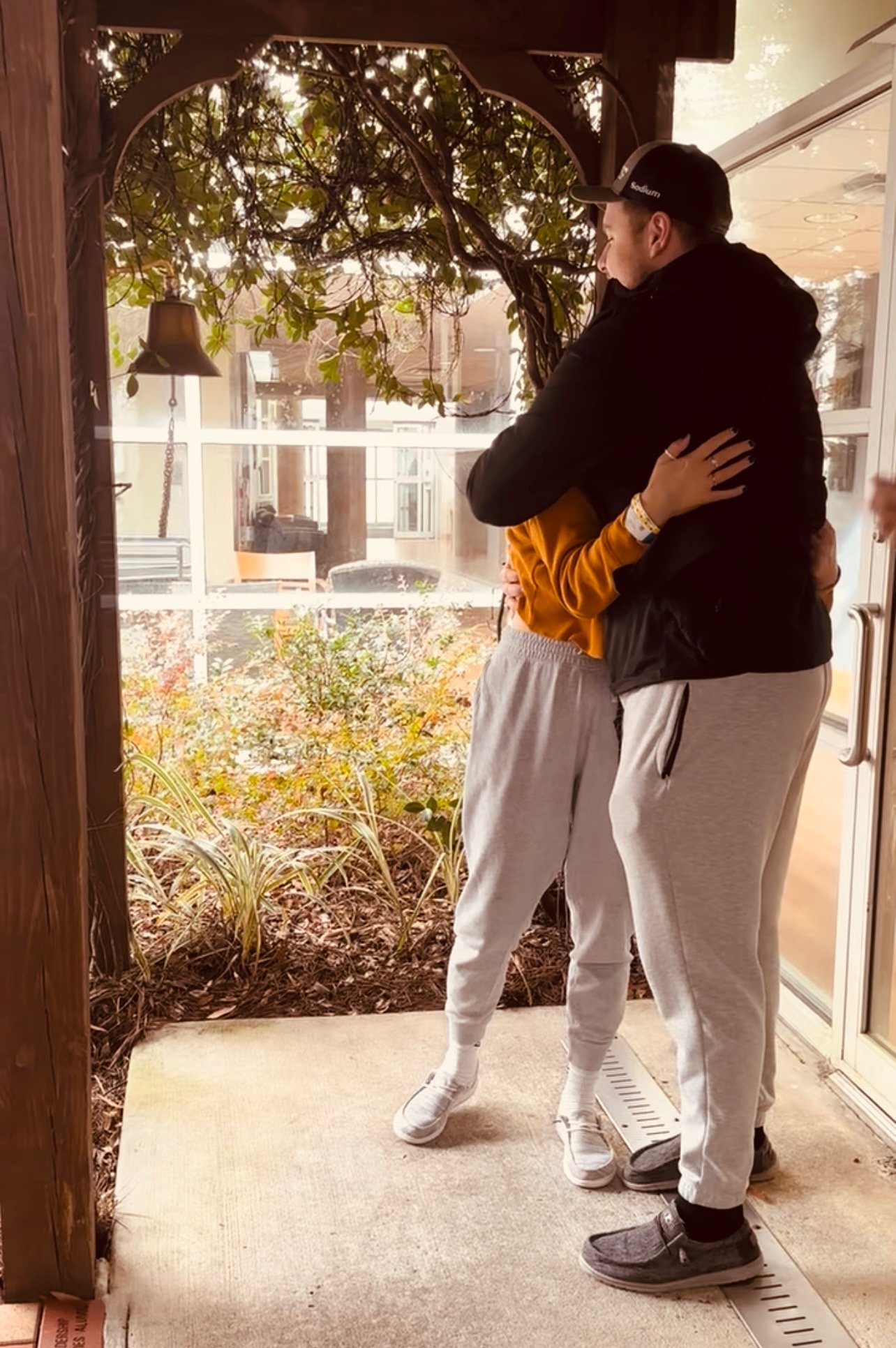
Brittney recalls walking into the Pearlman Cancer Center for the first time feeling terrified. But the compassion she encountered changed everything.
“From the front desk to the doctors, everyone was positive, helpful, and hopeful,” she said. “My nurse was patient and kind, walking me through every step. Everyone took care of me. Truly, that is a great facility, and I had such a wonderful experience during a scary time.”
Today, Brittney encourages women to take action and prioritize their health.
“Just do it,” she says about getting checked out.
“It’s easier to find it sooner than later. Stay positive, everything is going to be okay.”
This Breast Cancer Awareness Month, we share Brittney’s story to remind our community: early detection and compassionate care can make all the difference.
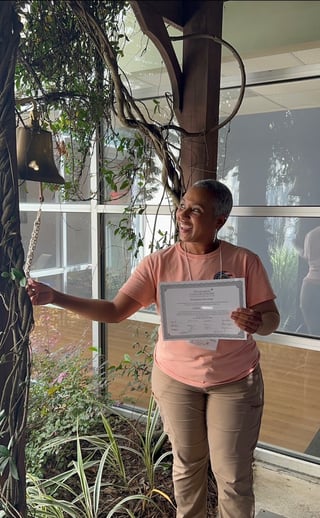
Lula Wynn
As an Army veteran and mother of three, Lula Wynn knows what it means to be strong. But nothing could have prepared her for the moment that breast cancer entered her life.
Lula’s journey began in late 2021 when she noticed a strange sensation under her arm near her lymph nodes. Trusting her instincts, she went to her Veterans Affairs doctor for a breast exam. With no family history of breast cancer, the doctor initially believed the irritation might be caused by her undergarments. But Lula didn’t let that be the final word.
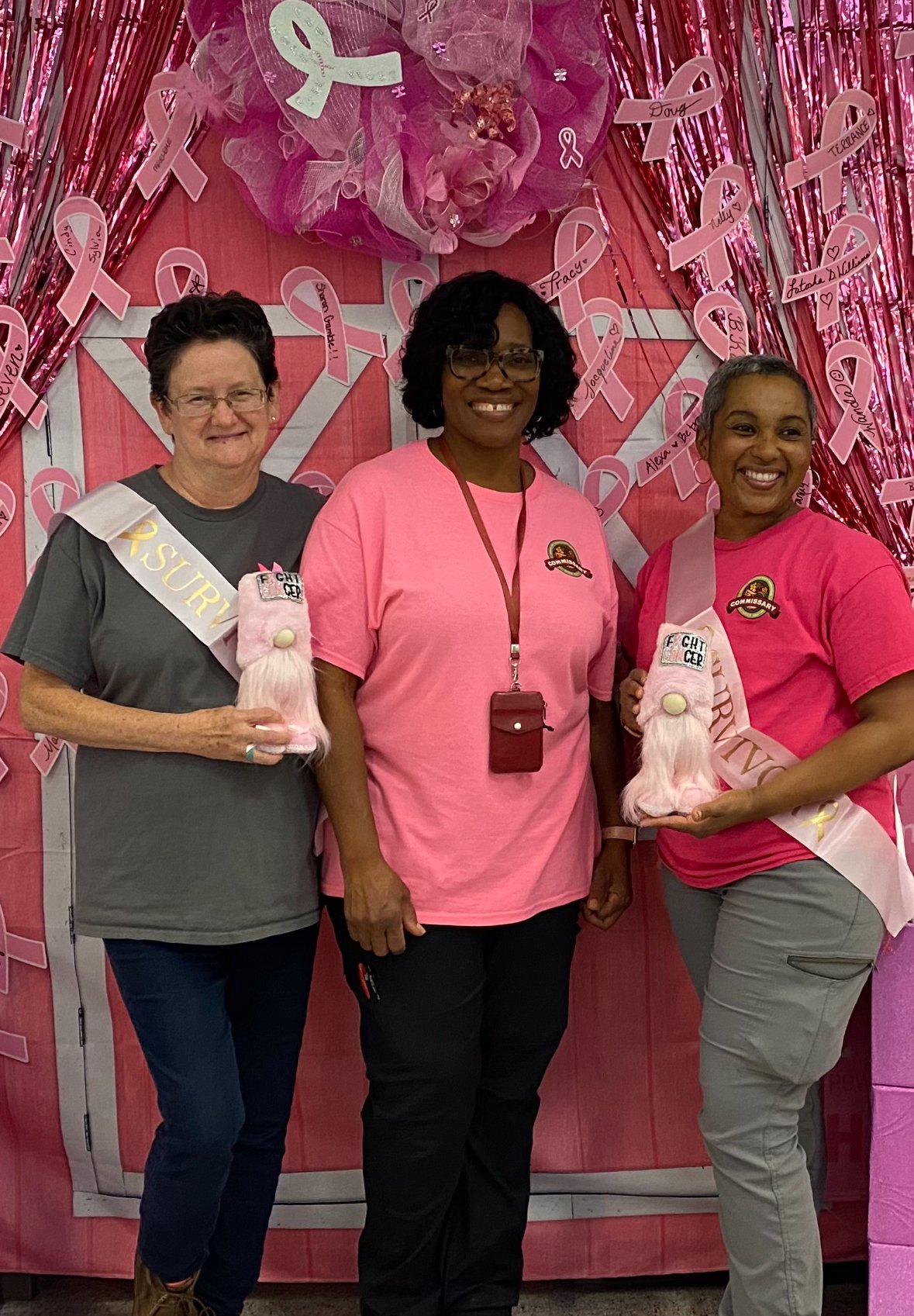
“I just knew something wasn’t right,” she recalls. In late 2022, she requested a referral to an outside provider and was sent to Harvey Miller, MD, Chief Clinical Quality Director at the SGMC Breast Center. After a mammogram and further testing, Lula received her diagnosis on December 24, 2022: stage 3 invasive ductal carcinoma.
She waited until after the New Year to share the news with her family. “It was one of the hardest things I’ve ever had to do,” she says. But with the support of her loved ones and her care team, Lula faced the challenge head-on.
Her treatment included a left breast mastectomy, followed by chemotherapy and radiation.
“It was a journey and a test of faith,” Lula shares. “You never know how strong you are until you have to be.”
Throughout her treatment, Lula leaned on her faith, her mother, her significant other, her children, and other close family and friends. “First of all, the Almighty God,” she says. “I couldn’t have done it without Him and the people who stood by me.”
At SGMC Health’s Pearlman Cancer Center, Lula found not only expert care but also compassion. “I was anxious and terrified at first, but the nurses, doctors, and staff were terrific. They treated me and my mom like family,” she says. She gave rave reviews of Medical Oncologist Samual Ofori, MD, and Radiation Oncologist Leslie Holmes, MD, as well as Dr. Miller.
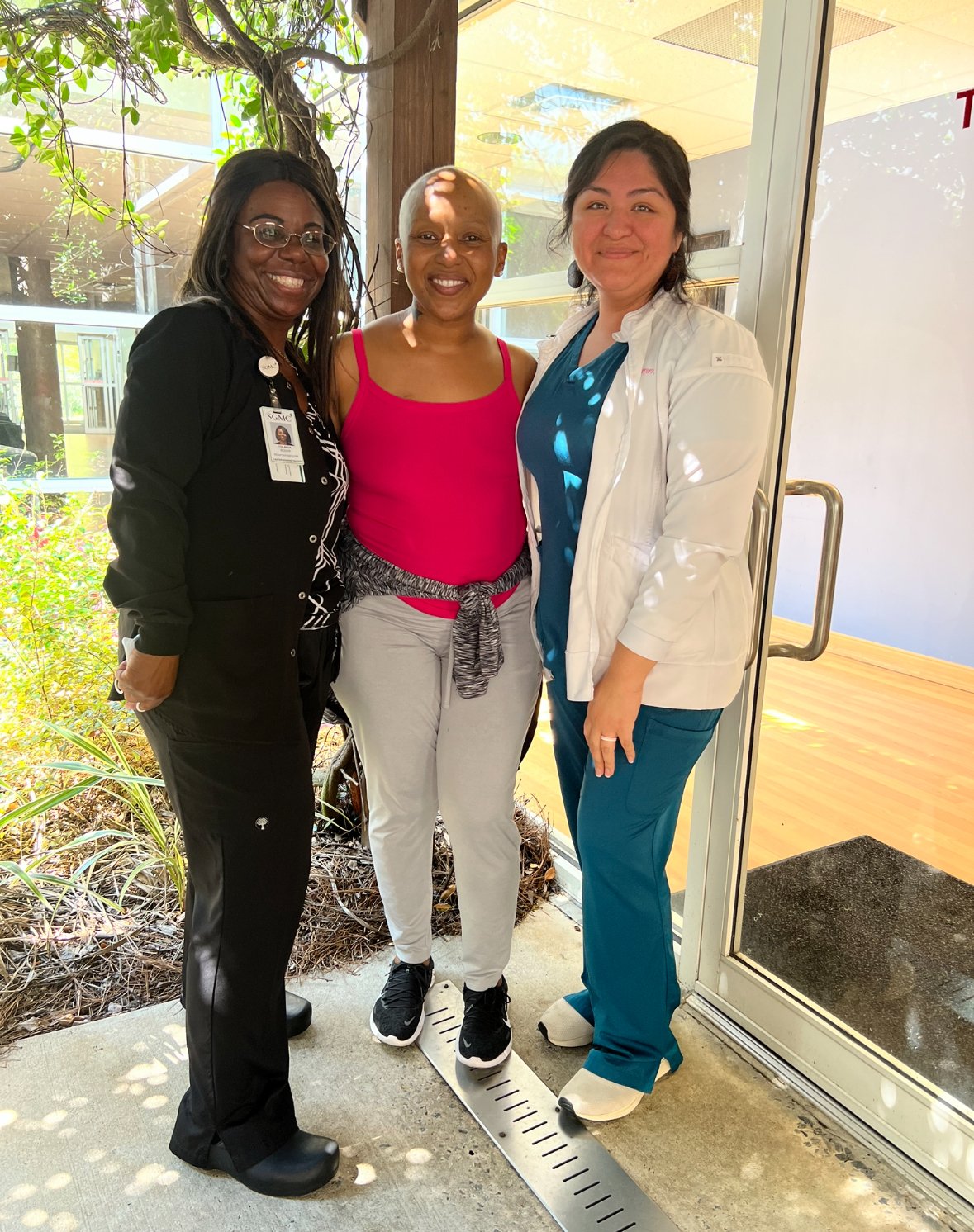
Now in remission since September 2023, Lula is using her voice to encourage other women to take charge of their health.
Her message is clear:
“Don’t wait. Don’t put it off. Get your mammogram. You are your best advocate. No matter what anybody says, no matter your age—if you feel like something has changed, go get it checked out.”
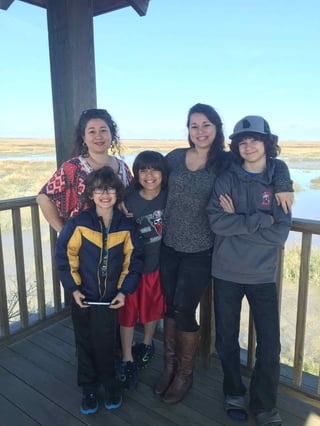
Alicia Jones
For Alicia Jones, a 55-year-old Nashville, GA resident, the path that saved her life began with a simple conversation at work.
After returning to school to pursue her lifelong dream of becoming a nurse, Alicia had just started a new job at Southern OBGYN, three weeks before graduating from nursing school. One day, as she stood nearby, she overheard a coworker speaking with one of the doctors about a concerning mammogram that required a biopsy. In that moment, Alicia realized she was 43 years old and hadn’t had a mammogram since her first one at 40.
That very day, she scheduled her annual exam and mammogram. A few weeks later, the results came back: stage 2 breast cancer.
The diagnosis was shocking. Alicia had no family history of breast cancer, lived an active lifestyle, and had breastfed all four of her children. But faith and timing were on her side. Surrounded by a supportive team, including doctors who had personally walked the breast cancer journey, Alicia began treatment with courage and determination.
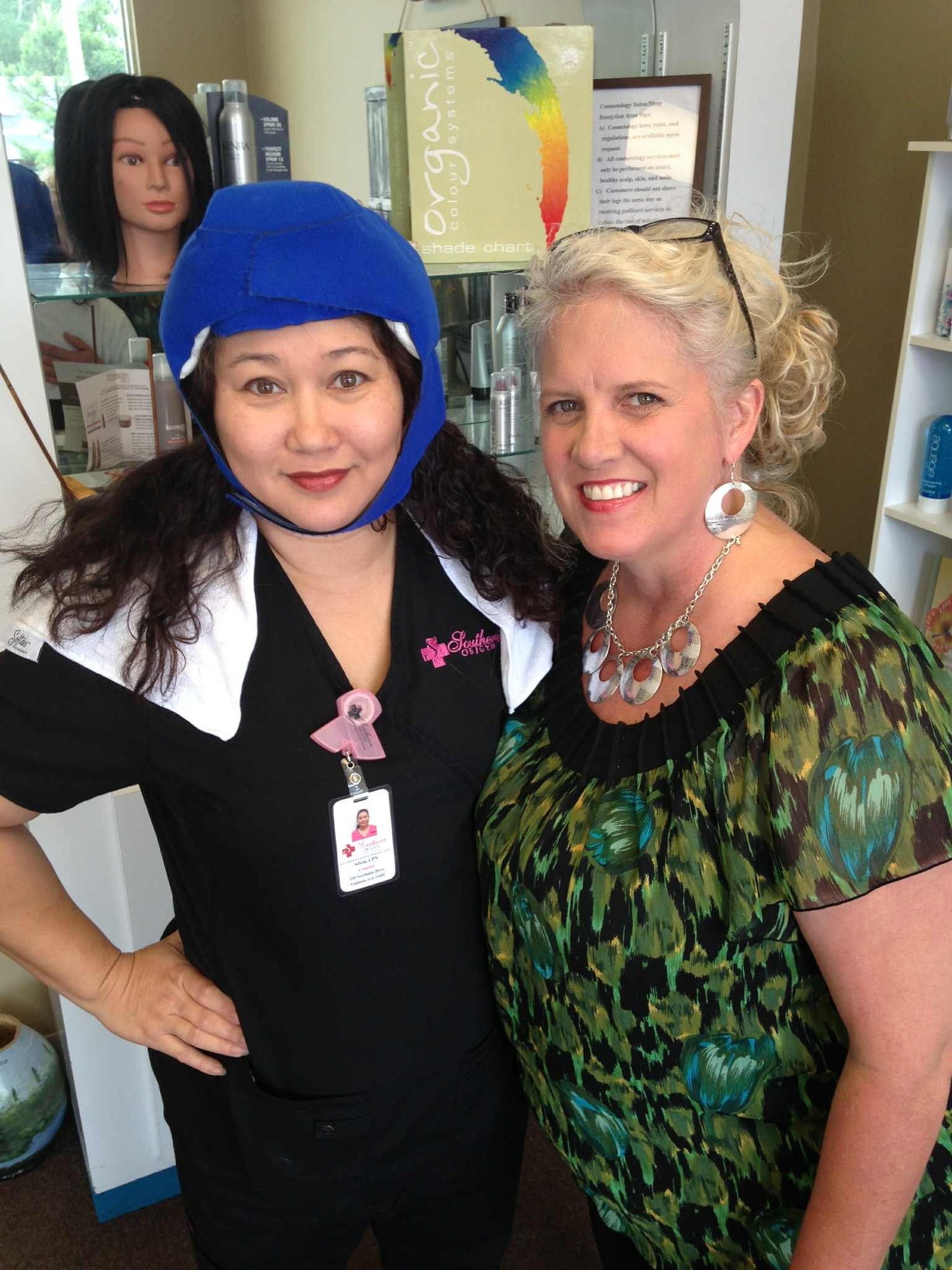
Under the care of Harvey Miller, MD, Chief Clinical Quality Director at the SGMC Breast Center, she underwent bilateral mastectomies, followed by chemotherapy. Her oncology care was led by Jack Wang, MD, at the SGMC Pearlman Cancer Center. Throughout her treatment, Alicia’s daughter was a senior in high school, and her three sons were still young. She wanted to protect them from the fear and uncertainty that cancer can bring.
Before starting chemo, Alicia discovered Penguin Cold Caps, which help preserve hair during treatment. With the support of her care team, who welcomed her two coolers of dry ice, she became the first patient at The Pearlman Cancer Center to use the caps. By keeping most of her hair, the cold caps helped Alicia protect her children from some of the visible reminders of her illness.
Alicia credits God, her children, her family, and her work family for carrying her through.
“God guided every step, He led me back to school, to that job, and even placed that coworker in front of me that day,” Alicia shared. “Without that moment, I might not have scheduled my mammogram.”
Now a proud employee at SGMC Dogwood Senior Behavioral Health, Alicia works with Alzheimer’s and dementia patients, continuing her calling to care for others.
She emphasizes one thing above all: “Don’t wait. Get your mammogram when it’s recommended. Even if you have no risk factors or family history, it can save your life. And if you ever notice anything unusual, get it checked right away.”
Alicia’s story is one of faith, divine timing, and the power of early detection. She hopes her journey inspires other women to listen to their bodies, trust God’s plan, and take that next step toward proactive care.
Breast Cancer Awareness Events
Registration is required for some events. See below:
Girls Just Wanna Have Brunch
Saturday, October 4, 10am-12pm
Women are invited to gather their friends & join SGMC Health to promote women's health advocacy. Attendees will be treated to mimosas, a waffle bar, giveaways, and a photo station. Register here.
Employee Night at VSU Football (Pink Out)
Saturday, October 4, 4:00-7:00pm
Support the Blazers at the VSU Football Pink Out game! We have free tickets available for employees while supplies last!
Percentage Night at Recoil Trampoline Park
Saturday, October 9, 4:00-8:00pm
Grab your kiddos for a night of fun at Recoil! A portion of all proceeds will be donated to SGMC Health to aid in the fight against breast cancer and contribute to research, support, and awareness efforts.
Wear Pink Friday
Friday, October 17
Show your support by wearing jeans and SGMC Health's 2025 Breast Cancer Awareness T-shirt. Let's wear pink with purpose!
Saturday Mammo Appts
Saturday, October 18, 9am-12pm
Make your health a priority. Schedule your annual mammogram online with a convenient Saturday appointment. Register here.
Survivors Paint Party
Tuesday, October 21, 6pm-7:30pm
Calling all breast cancer survivors! You're invited to paint a circle door hanger & enjoy heavy hors d'oeuvres as you gather with other survivors or those currently undergoing treatment. Space is limited, and registration is required.
Knowledge Saves Lives
Explore our podcasts on breast cancer and the power of early detection.
Important Things to Know About Mammograms
- They can save your life.
Finding breast cancer early reduces your risk of dying from the disease by 25-30% or more. Women should begin having mammograms yearly at age 40, or earlier if they're at high risk. - Don't be afraid.
Mammography is a fast procedure (about 20 minutes), and discomfort is minimal for most women. The procedure is safe: there's only a very tiny amount of radiation exposure from a mammogram. - Get the best quality you can.
Our state-of-the art 3D mammography system provides peace of mind and reduces callbacks by up to 40% compared to 2D mammography alone. It also detects 20-65% more invasive breast cancer compared to 2D mammography, which for some women, this could mean an earlier diagnosis and a greater variety of treatment options. - American Cancer Society Resources
Mammograms are low-dose x-rays that can help find breast cancer. The American Cancer Society provides topics that can help you know what to expect. - Resources from the CDC
Learn more about mammograms, symptoms, and how to lower your risk of breast cancer.
